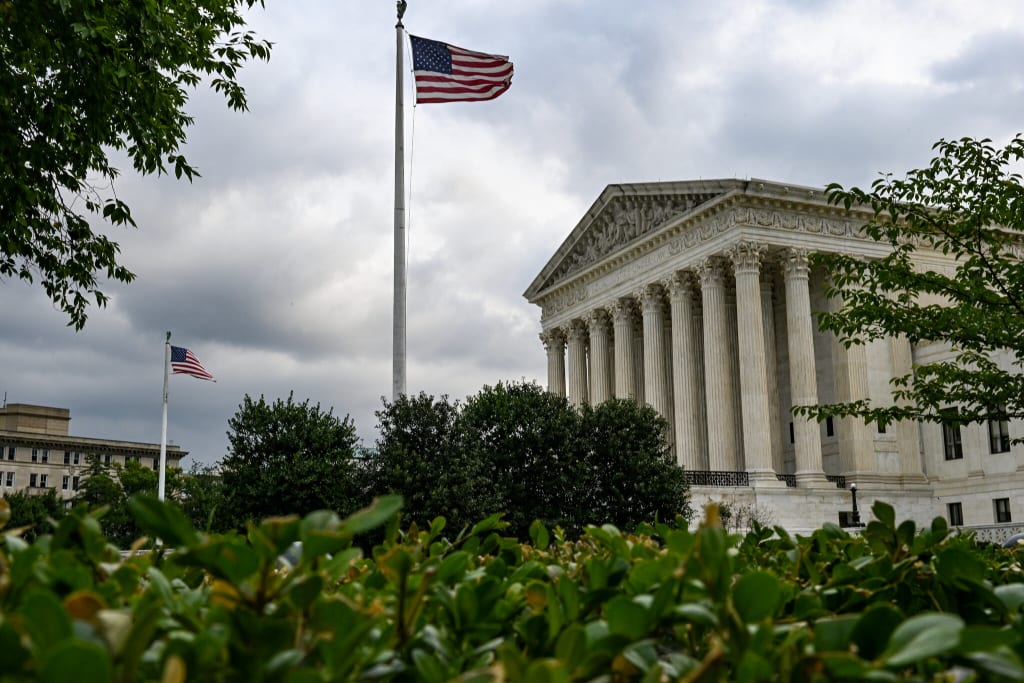A Positive Perspective on the Supreme Court Decision to Limit Prosecution of SCOTUS
An Opinion

The recent Supreme Court decision to limit the prosecution of its own justices has sparked intense debate and diverse opinions across the legal and political spectrum. However, there are several compelling reasons why this ruling can be viewed positively, particularly in terms of preserving judicial independence, maintaining the balance of powers, and protecting the integrity of the judicial system. Here’s a point of view that outlines the benefits of this decision.
1. Preservation of Judicial Independence
One of the core principles of a democratic society is the independence of the judiciary. The judiciary must operate free from external pressures and influences to ensure fair and impartial justice. By limiting the prosecution of Supreme Court justices, the decision safeguards judges from politically motivated attacks and undue influence from the executive and legislative branches. This protection allows justices to make decisions based solely on legal merit, without fear of retribution or political retaliation, thus preserving the integrity of the judicial process.
2. Maintaining the Balance of Powers
The separation of powers is a fundamental aspect of the U.S. Constitution, designed to prevent any one branch of government from becoming too powerful. Allowing unchecked prosecution of Supreme Court justices could disrupt this balance by giving the executive and legislative branches leverage over the judiciary. The Supreme Court’s decision helps maintain this equilibrium, ensuring that each branch can operate independently and effectively, without interference from the others. This balance is crucial for the proper functioning of a democratic government and the protection of individual liberties.
3. Protection from Frivolous and Politically Motivated Claims
In a highly polarized political environment, there is a significant risk that Supreme Court justices could become targets of frivolous or politically motivated claims. Such prosecutions could be used as tools to undermine judicial authority and influence court decisions. By limiting the prosecution of its justices, the Supreme Court reduces the likelihood of such abuses, ensuring that the judiciary remains focused on its primary role of interpreting and upholding the law.
4. Encouraging Judicial Courage and Integrity
Supreme Court justices are often called upon to make difficult and sometimes unpopular decisions. Knowing that they have protection from unwarranted prosecution empowers them to uphold the law with courage and integrity. This assurance fosters a judicial environment where justices can prioritize justice and legal principles over personal safety or political considerations. The decision, therefore, reinforces the moral and ethical backbone of the judiciary, encouraging judges to remain steadfast in their duty to uphold the Constitution.
5. Historical Precedent and Continuity
Throughout history, the judiciary has enjoyed a degree of immunity necessary to perform its duties effectively. This decision aligns with historical precedents that recognize the unique role and responsibilities of Supreme Court justices. It continues the tradition of safeguarding the judiciary from external pressures, ensuring continuity and stability in the legal system. This continuity is essential for maintaining public confidence in the judicial system and the rule of law.
6. Promoting a More Deliberate and Thoughtful Legal Process
By limiting the prosecution of Supreme Court justices, the decision encourages a more deliberate and thoughtful legal process. It ensures that any allegations against justices are thoroughly investigated and substantiated before any legal action is taken. This careful approach helps to avoid rash or poorly considered prosecutions that could damage the reputation and effectiveness of the judiciary. It promotes a legal culture where accountability is balanced with respect for judicial independence.
7. Ensuring Long-Term Judicial Stability
The Supreme Court plays a critical role in ensuring the stability and continuity of the legal system. By protecting its justices from arbitrary prosecution, the decision helps to ensure that the Court can continue to function effectively over the long term. This stability is crucial for upholding the rule of law and protecting the rights and freedoms of all citizens. It ensures that the Supreme Court remains a pillar of justice and a guarantor of constitutional principles.
Conclusion
While the Supreme Court’s decision to limit the prosecution of its justices may be controversial, it is essential to recognize the positive aspects of this ruling. By preserving judicial independence, maintaining the balance of powers, protecting justices from frivolous claims, encouraging judicial integrity, aligning with historical precedents, promoting a thoughtful legal process, and ensuring long-term judicial stability, the decision supports the fundamental principles of democracy and the rule of law. It is a safeguard designed to protect the judiciary from political and external pressures, allowing it to fulfill its vital role in upholding justice and the Constitution.
About the Creator
Dave Karpinsky, PhD, MBA
A world traveler, educator, consultant, entrepreneur, husband and a father sharing his experience and wisdom. Join me as I weave my narrative, offering a window into a life lived fully and passionately. Please subscribe :-)
Enjoyed the story? Support the Creator.
Subscribe for free to receive all their stories in your feed. You could also pledge your support or give them a one-off tip, letting them know you appreciate their work.






Comments
There are no comments for this story
Be the first to respond and start the conversation.